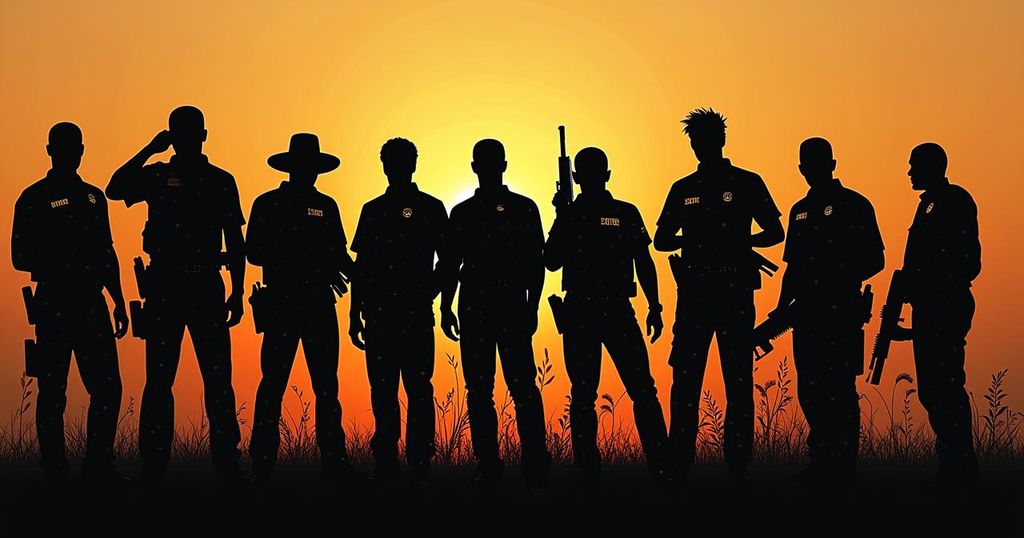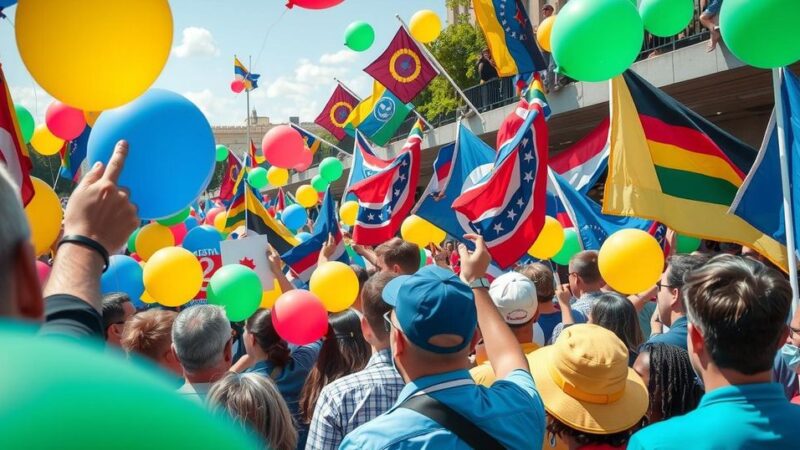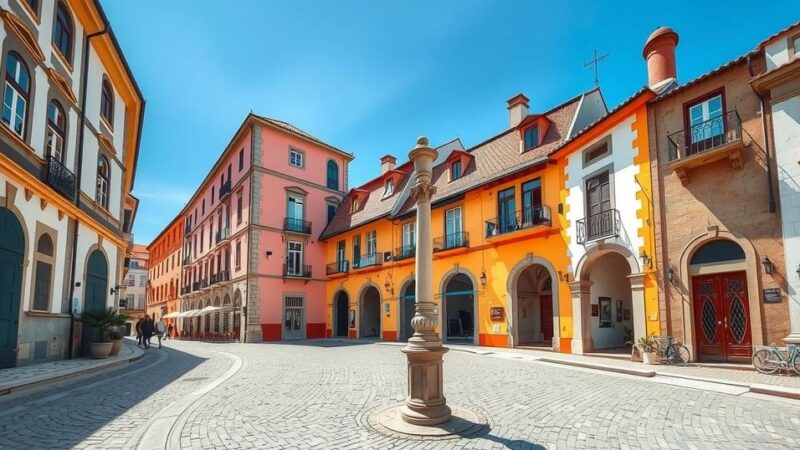President Nayib Bukele of El Salvador defended his anti-gang campaign at the UN, claiming it has restored safety and freedoms to the nation after years of violence. He announced that over 82,000 alleged gang members have been arrested under a state of emergency, asserting that he has liberated innocent civilians from fear. Despite this, human rights organizations criticize the government’s methods and detainment practices. Bukele emphasized the country’s revived tourism industry and claimed that political freedoms are being respected under his leadership.
During the recent United Nations General Assembly, President Nayib Bukele of El Salvador articulated the successes of his government’s rigorous anti-gang initiative, asserting that it has significantly enhanced public safety across the nation. He proclaimed, “In the last five years, El Salvador was reborn; we returned the streets of our country to our people.” Launched in March 2022, Bukele’s aggressive campaign against gang violence involved the implementation of a state of emergency, which facilitated detentions without judicial approval. This strategy has reportedly led to the arrest of 82,000 individuals suspected of gang affiliations. In his address, Bukele countered accusations of mass incarceration by declaring, “Some say that we have imprisoned thousands, but the reality is that we have freed millions. Now it is the good people who live freely, without fear, with their freedoms and human rights fully respected.” He emphasized the transformation of El Salvador from what was once known as the “murder capital of the world” to the safest nation in the Western Hemisphere, remarking it was the most significant obstacle the country has ever encountered. However, human rights organizations have raised concerns regarding the administration’s methods, alleging that countless innocents have been unjustly detained and condemning the conditions within prisons. Bukele highlighted the resurgence of the tourism sector due to improved security, asserting, “We returned the streets of our country to our people and established a flourishing tourism industry, hosting international events for surfing, sports, and entertainment.” He underlined his commitment to restoring a sense of home for many Salvadorans who fled due to violence and poverty. Moreover, he reiterated that political freedoms and rights to free expression are upheld in El Salvador, stating, “In El Salvador, we do not imprison our opposition, we do not censor opinions, we do not confiscate the assets of those who think differently, we do not arrest people for expressing their ideas,” further asserting that individual liberties are safeguarded. Overall, President Bukele’s address at the UN aimed to project an image of a country that is recovering from violence and instability, eager to embrace a future marked by safety, freedom, and dignity.
Nayib Bukele’s administration in El Salvador has been characterized by a significant crackdown on gang violence, which has plagued the country for decades, contributing to a reputation for extreme levels of violence and insecurity. The state of emergency, invoked in 2022, was a pivotal moment in his strategy to combat gangs, commonly referred to as ‘maras’. This approach has drawn both national support for enhanced security and international criticism regarding human rights abuses. The backdrop of Bukele’s policies must be understood within this context of societal upheaval and the stark realities faced by Salvadorans under gang influence.
In conclusion, President Nayib Bukele’s assertions at the United Nations reflect a bold narrative of transformation in El Salvador amidst ongoing controversy. While promoting the accomplishments of his administration’s anti-gang efforts, he faces scrutiny regarding human rights implications and the treatment of detainees. The president’s insistence on safeguarding freedoms alongside his security measures reveals a complex dynamic in his leadership aimed at balancing safety and civil liberties in El Salvador.
Original Source: ticotimes.net







